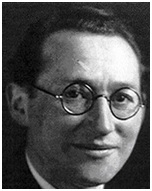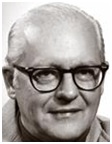|
 |
|
 |
Kurt Lewin - Psychology, Leadership and Change
Kurt Lewin (1890-1947) German-born American psychologist (pictured right). Founder of modern social psychology that explains how our behaviour is affected by other people. A big influence on our understanding of change management .
His most famous book is… Field Theory in Social Science (1951).
What did he say about psychology, leadership and change?
1. Leadership In a research study with Ronald Lippitt (pictured right) and Ralph White, he identified three leadership styles whose effectiveness depended on people’s situation (see also point 2):
a) authoritarian (telling people what to do) This is best when:
b) democratic (people participate in decision making) This:
c) laissez-faire (people are allowed to make decisions with little or no guidance from the leader). This is most effective when people are highly knowledgeable. But laissez-faire often leads to:
2. Social psychology This says that people are affected by:
Lewin explained this in what is now known as Lewin’s Equation. So he emphasized the importance of:
a) groups How people interact in them (e.g. pressure to conform) This later became known as group dynamics - see point 4 below. b) conflict People's situation can only be improved by:
3. Change management Lewin’s “force field analysis” says that: For any change to occur, “driving forces” (factors driving change) must exceed “restraining forces” (factors supporting the no change position or status quo). Lewin believed change happens in three stages:
a) unfreezing Overcoming resistance to change through:
b) moving Changing what needs to be changed based on:
c) freezing Making the change permanent in people’s minds through:
4. Group dynamics Lewin coined this term to describe the importance of groups in change and resolving conflict.
Key quote on relationships We all need each other.
Key quote on learning Learning is more effective when it is an active rather than a passive process. There is nothing so practical as a good theory.
Key quote on success A successful individual typically sets his next goal somewhat, but not too much, above his last achievement. |
|
|
||
|
|
|
||
|
||
| Copyright © wisdomtowin.com All Rights Reserved | ||
|










